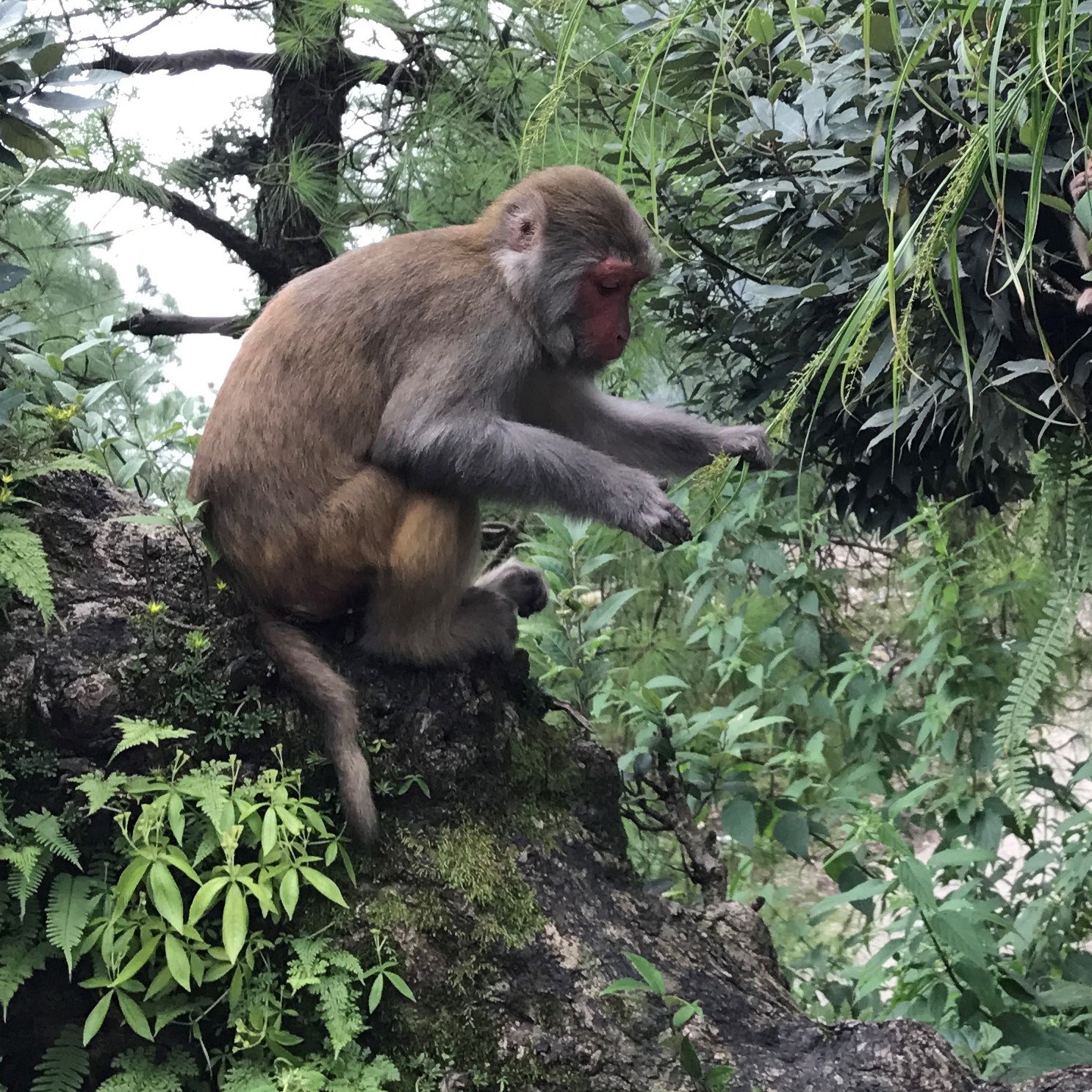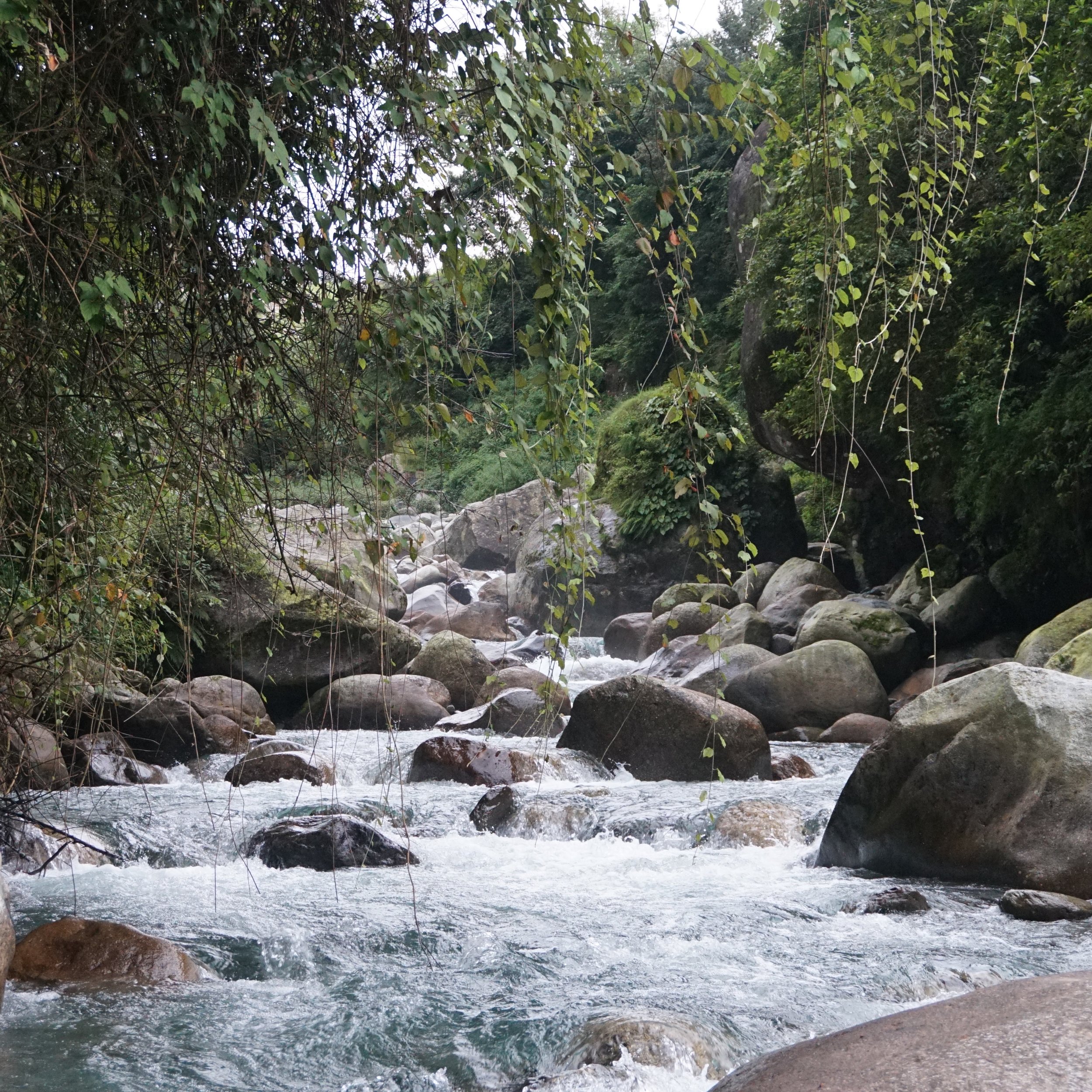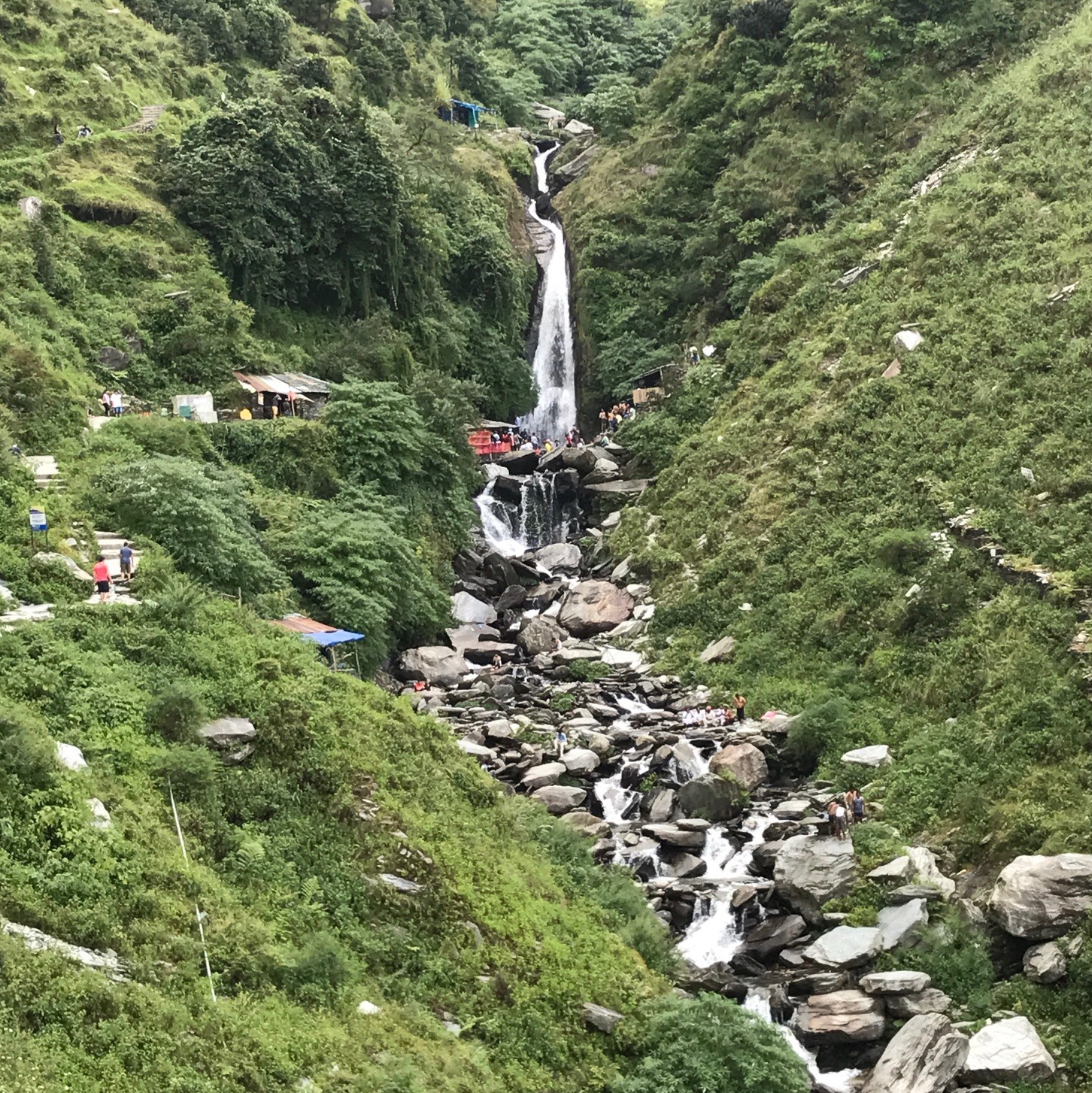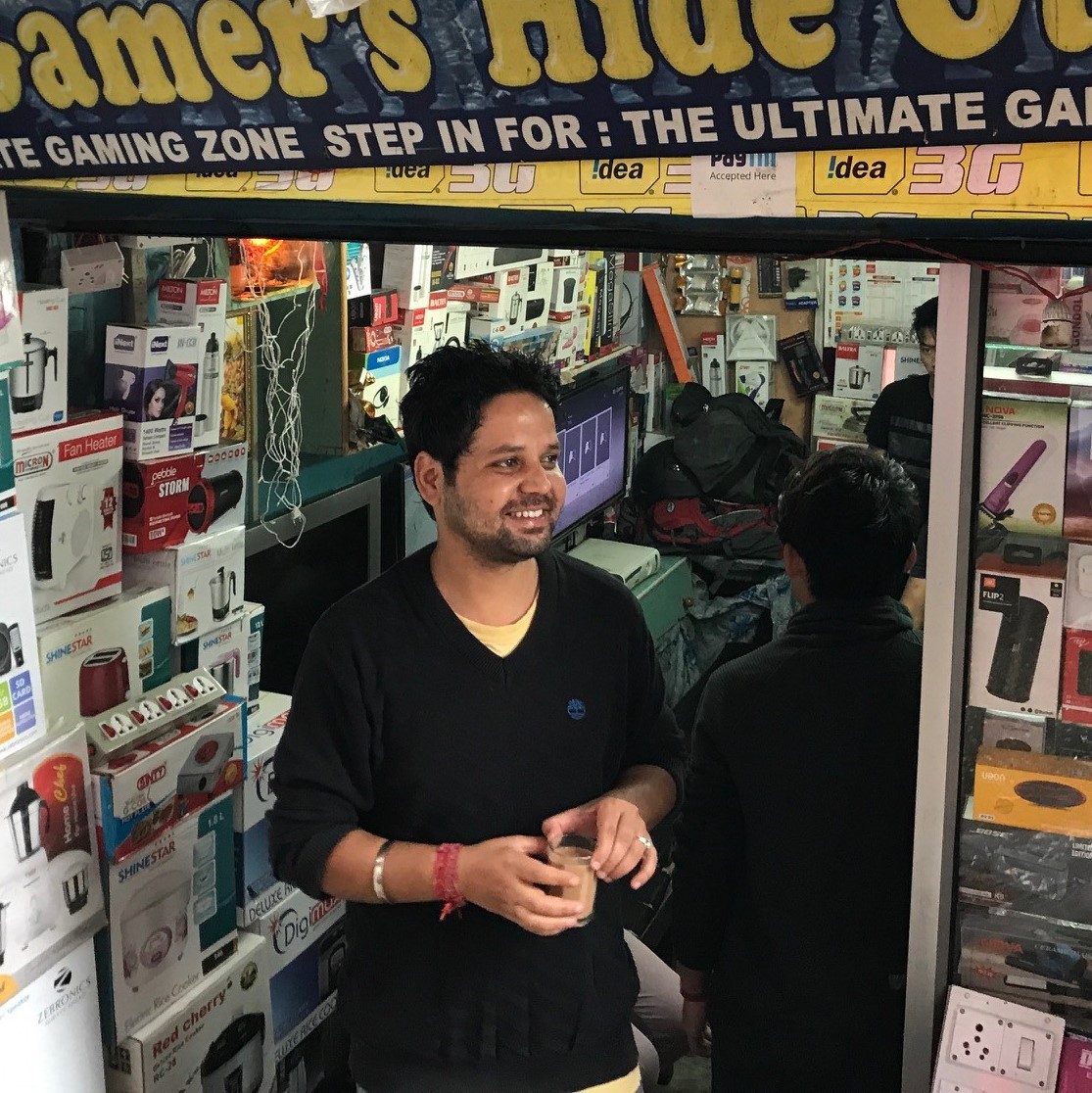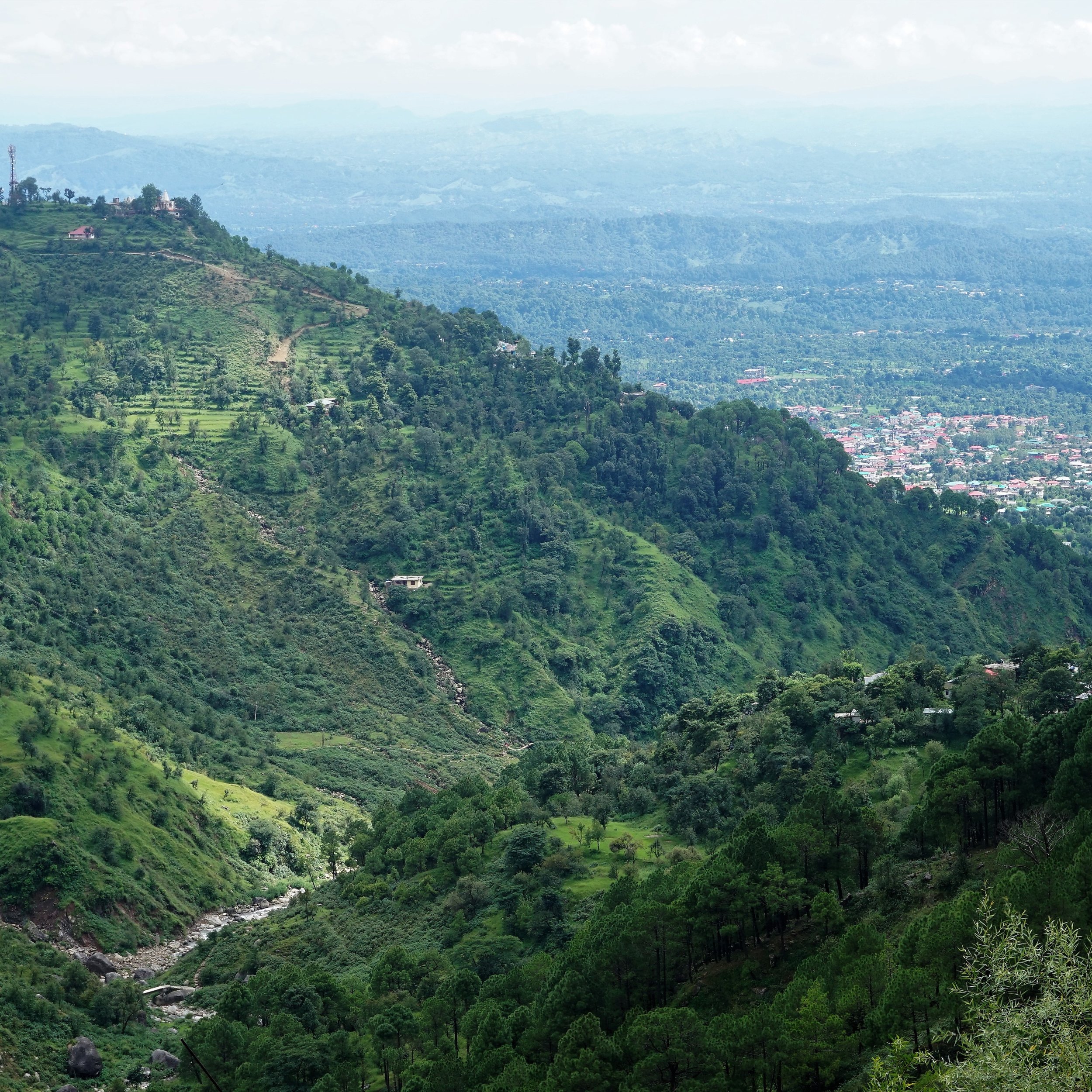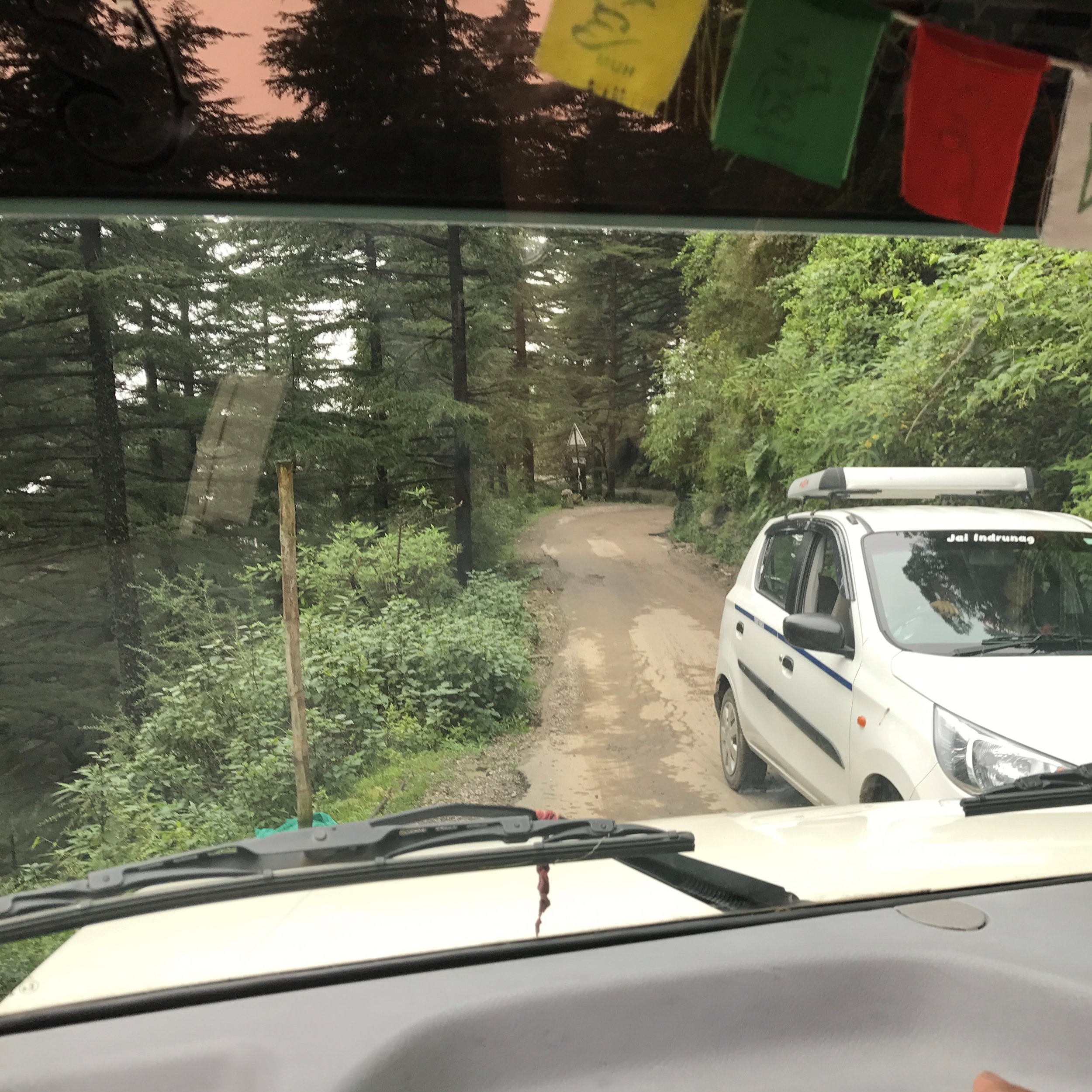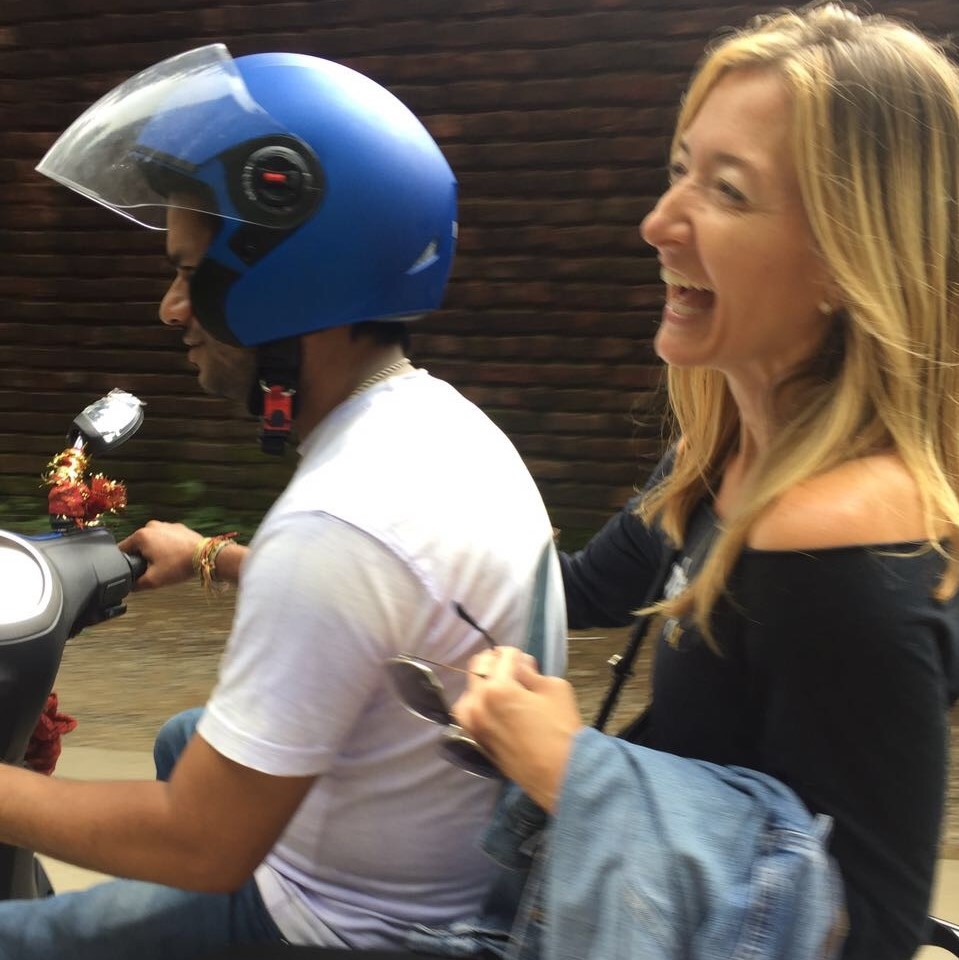Enchanted City
In Dharamsala, it was the clouds that first enchanted me.
The ocean of clouds that stretches out below the city as far as the eye can see, always moving, shifting, changing, forming an ethereal buffer between this mountaintop sanctuary city and the rest of the world. The clouds that occasionally ascend to envelop the streets of the town and its colorful buildings in a thick fog, and sometimes pause overhead to unleash buckets of rain onto everything and everyone below. During monsoon season, the rain can continue for days, weeks at a time. But always, eventually, the sun reappears, sending its sparkling rays over the lush, rain-cleansed mountain landscape.
The city rises above the clouds like something out of a fairy tale, although when I say this I mean the setting is fairy tale-like. The buildings themselves are a maze of simple, colorful buildings perched precariously on the steep mountainside, the small villages that make up Upper Dharamsala linked together by pot-holed roads much too narrow for the two lanes of traffic they accommodate, frequently resulting in creative and terrifying maneuvers by the drivers who navigate them. I was asked many times if I was ever afraid when I was in India. The answer is: never. Except when I was in a car on those crazy cliffside roads. But somehow I survived unscathed, and never once did I see a single accident.
I spent 4 weeks in Dharamkot,
a small village a 20 minute hike up the mountain from the Dalai Lama’s temple in Mcleod Ganj. In this quiet little town, it was the shopkeepers who first charmed me. It happens often, if you are making a small purchase and hand one of them a 500 rupee bill (about US$8), rather than give you change, they’ll wave the money away and tell you “Pay me tomorrow.”
Mcleod Ganj as seen from the road up to Dharamkot
My jaded Western mind was completely flabbergasted by this. I mean, I know I'm an honest decent person who will bring you the money later, but how do you, Mr. Trusting Shopowner, know that? I'm a tourist and a total stranger to you. How do you know I'm not going to disappear with your hard-earned money and never come back? Given that these merchants' customers are primarily tourists, and that they've all been in business for quite a few years, I think it's safe to assume that most or all of them must come back and pay later, which speaks well of humanity at large - or at least of the portion of humanity prone to visiting small towns in India.
An example even more amazing to me: at a shop in Mcleod Ganj, I bought a 450 rupee electric kettle, which I later discovered didn't work. A week later, I stopped in to let them know about the issue, although I didn’t have the kettle with me. The owner promptly handed me a replacement kettle, just assuming I would bring the original back later.
This unhesitating trust is a rare and wonderful thing. It somehow makes you feel lighter. Imagine a world where all business was done this way...
And then there’s the helpfulness of the people, which seems to rub off on visitors too. Between Mcleod Ganj and Dharamkot is a steep winding walk of about 20 minutes. When you’re making the hike up or down, all you have to do to catch a ride is turn and glance at any passing driver. Nine times out of ten, if they have space in their car or on their scooter, they’ll stop and offer you a lift – locals and tourists alike. No one seems to have an ego or an agenda. They’re friendly without being overly pushy.
And then there are the charming, luminous smiles of the Tibetans.
Many of the Tibetans I saw were monks. I learned hello in Tibetan (“tashi delek!” – like aloha, it means goodbye too) and would smilingly greet any Tibetan I passed with those words. Their reaction was always the same – their faces would immediately light up with a bright smile and they would respond in kind “tashi delek!”
They have a peaceful, soothing energy that matches the tranquil energy of the whole town.
It’s a place that feels completely safe. You get the feeling that everyone around you has your best interest at heart. Even the stray dogs – which are plentiful in this area – benefit from this benevolent attitude. They are remarkably clean, well fed stray animals who seem to have a pretty nice life. Let’s just say that being reincarnated as a stray dog in Dharamsala would not be the worst thing that could happen to you.
It’s a small town; definitely not overly developed, and that’s part of its charm. I don’t believe there’s a single street sign anywhere in Dharamkot. There aren’t all that many streets around town to begin with.
The most common way to get from Point A to Point B is by following paths consisting of part stone walkway, part gravel path, part stone steps built into the mountain, part front yard or backyard of someone’s home, a little bit of sidewalk and depending on the amount of recent rain, possibly a little bit of mud. There’s something absolutely delightful about this haphazard way of getting around.
This place has a piece of my heart and I know I’ll be back.
Top left to bottom right: Plenty of monkeys around; beautiful river behind Aghanjar Mahadev temple; Bhagsu waterfall; one of Dharamkot's many bovine residents; the trusting kettle shop owner;view along the hike to Bhagsu waterfall; pulling to the edge of the cliff to let the other car pass; scooter lift up the mountain from a kind stranger.




